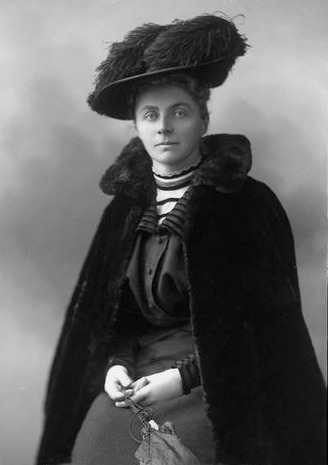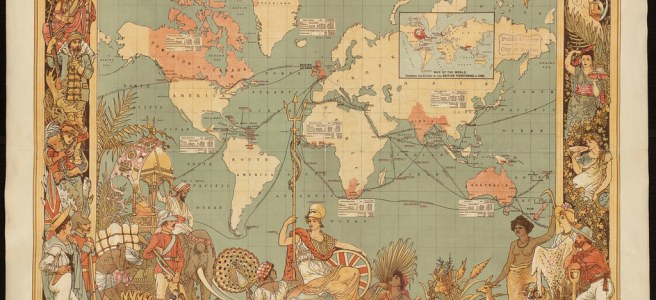Eshana Dasanjh – Year 11 Student
History is determined by those who write it.
As Napoleon once said, ‘What is history, but a fable agreed upon?’ Many parts of history are often forgotten, downplayed, or repressed, and nowhere is this more fitting than in the turbulent history of the British Empire. Instead of recognising the streams of violence and murder that the British Empire left in its wake, many are inclined to feel proud despite the sentiment that there is very little to be proud of in a legacy of oppression, greed, slavery and jingoism. A 2014 YouGov survey showed that 59% of the British public felt that the Empire is something to be proud of (only a mere 19% were ashamed of the British Empire, while 23% were unsure on their stance), and 49% thought the countries colonised by Britain are better off because of it [1]. It is therefore conclusive to assume that such pride in the British Empire is due to public ignorance and the innate lack of awareness of the many atrocities that occurred as a result of British colonialism. The British Empire was not established in underdeveloped countries that were saved and improved because of the British coming to develop and rule over them, as older histories like to imply. Places such as India, whose economy was a clear victim of the British Occupation [2], and Africa, which in relation to Western Europe is underdeveloped largely due to its exploitation at the hands of Europe and Britain [3], suffered greatly due to colonialism at the hands of the British Empire. Yet many Britons who glorify the British Empire seem blatantly oblivious and ignorant to the true horrors it caused. This then goes to pose the question: has the history of the British Empire been censored, and by whom?
It is impossible not to see that, however blameless we may be in the matter, we shall not be able to make anybody think so, and I cannot avoid an uncomfortable feeling that there must be some way to make the thing a little less awfully bad if one could only think of it.
Lord Milner
The Second Boer War was fought between the British Empire and the Boers due to many factors, with one of them being the Boers fighting rebelling the takeover of their recently independent republic, which had been achieved after the First Boer War. The British set up concentration camps as part of a campaign against the Boers, and in these camps approximately 10% of the Boer population died [4]. The horrors committed in these camps, however, were concealed from the British public. Emily Hobhouse, a welfare campaigner, pacifist and feminist, was the one who exposed the tragedy [4], causing political scandal by showing the public what was really happening in South Africa. However, letters and photographs, which were revealed recently, (belonging to a colonial official in South Africa) showed that British officials had considered launching a publicity campaign (after Hobhouse’s whistleblowing) to cover up the true conditions of the concentration camps in which thousands perished during the War. Letters written by Lord Milner, the man tasked with handling the camps after their horrors were exposed, show efforts by British officials to downplay the atrocity of the camps. In one letter, Milner wrote, ‘It is impossible not to see that, however blameless we may be in the matter, we shall not be able to make anybody think so, and I cannot avoid an uncomfortable feeling that there must be some way to make the thing a little less awfully bad if one could only think of it’ [4].

This highlights the attempts of Britain to downplay the suffering caused at their hands due to colonialism. They underplayed repression, slavery, massacres, brutality, conquests and land grabs, which all stemmed from their desperation to maintain the colonies and build their empire. Even now, many look back at the British Empire with wistful nostalgia, glorifying a ‘legacy’ of bloodshed, because they are unaware of the hardships which ensued, despite their exposure at the time. We should learn about the dark history of the British Empire, yet this history is tossed aside, replaced with delusional daydreams about the ‘greatness of the Empire’.
This is evidenced once again through the Mau Mau rebellion in the 1950s, an armed rebellion launched by the Kikuyu, who had lost land during colonisation, against the British. Once again, inhabitants faced violence, including within a system of detention camps, as Britain tried to brutally suppress the rebellion. Britain tried hiding the torture and violence that occurred in Kenya during the rebellion. Harvard historian Caroline Elkins discovered, when carrying out research for her book ,the British Gulag, that the British had torched documents before their 1963 withdrawal from Kenya [5]. Other papers were brought to the UK after Kenya eventually became independent, but they were never made public in the National Archives [6]. Many documents were absent, or classified as confidential, even 50 years after the rebellion. This demonstrates the attempt of British officials whom tried to cover up and bury the horrors and violence that stemmed from British colonialism. Other documents, held in a secret Foreign Office archive for five decades, also showed the British government’s attempts to cover-up a massacre of unarmed prisoners. Eleven prisoners had been savagely beaten to death, but ministers and officials claimed that the men had died after drinking contaminated water [7]. The deaths at the prison camps resulted from prison guards being authorised to inflict abuse upon prisoners in the camps in an attempt to break their will and force them to submit to the authority of the Empire. This is a striking example of Britain trying to censor the history of the Empire as they attempted to cover up what truly happened in Kenya during the Mau Mau rebellion.
We should learn about the dark history of the British Empire, yet this history is tossed aside, replaced with delusional daydreams about the ‘greatness of the Empire’.
Despite all this, more of the history of the Empire is gradually coming to light, as we begin to learn more about what happened in the past. On the 5th October 2012, the High Court ruled that three elderly Kenyans had the right to sue the British government on the grounds of their being tortured by colonial officials during the Mau Mau rebellion [8]. Harvard historian Caroline Elkins and Oxford historian David Anderson acted as expert witnesses during the case, due to their research into the Mau Mau rebellion [5] [9]. In January 2011, following the High Court case brought forward, the British government was forced to admit that 8,800 files had been secretly sent to Britain from colonies (before their independence) [10].
We, as a society, must be more vigilant of the history of the British Empire, so that instead of remembering a censored and delusional myth, or having a great amnesia over Britain’s colonial past, we remember the oppression, violence and damage that many experienced due to British colonialism.
References
[1] https://yougov.co.uk/topics/politics/articles-reports/2014/07/26/britain-proud-its-empire
[3] Rodney, Walter (1972) “How Europe Underdeveloped Africa”
[4] https://www.theguardian.com/world/2001/dec/09/paulharris.theobserver
[5] https://www.theguardian.com/news/2016/aug/18/uncovering-truth-british-empire-caroline-elkins-mau-mau
[6] https://www.bbc.co.uk/news/uk-13044974
[7] https://www.theguardian.com/world/2012/nov/30/maumau-massacre-secret-files
[8] https://www.theguardian.com/world/2012/oct/05/maumau-court-colonial-compensation-torture
[10] https://www.bbc.co.uk/news/uk-17734735
https://www.theguardian.com/books/2011/oct/19/end-myths-britains-imperial-past
Eshana Dasanjh (11FTF)


If this was all written by a Year 11 student, I am thoroughly impressed. Great job Eshana Dasanjh!
LikeLike